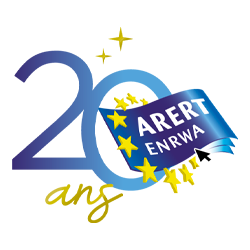ARERT is honoured to participate in the EU funded JUST project JuWiLi II (Justice Without Litigation) which focuses on the development of a modern European concept of extra-judicial administration of justice in 22 EU Member States. Areas of law which are of particular interest are succession and divorce proceedings, digitalisation and other family law and registration. Read more on www.juwili.eu
ARERT integrated the Task Force “digitalisation”, aiming at strengthening procedural standards. It plans to examine issues relevant to the conduct of notarial activities in non-contentious proceedings concerning EU citizens. Its members have recently chosen to focus on the European Certificate of Succession (ECS) to model an initial process.
The ECS is an important document in cross-border inheritance proceedings. Recognised in the 25 Member States subject to the EU Regulation on Succession[1]its purpose is to establish the status of heirs and other persons with an interest in a succession. This instrument should enable the swift, smooth and efficient settlement of a succession with cross-border implications within the European Union.
Currently, the process of issuing ECS varies between Member states in terms of competence, level of digitalisation etc. In some Member States, notaries are fully competent for issuing ECS, while in other Member State they are partially involved in the application process. Notaries members of the task force consider that an exchange of practices could undoubtedly be beneficial to improve the process by using digital technology.
This approach chosen by the Task Force Digitalisation is particularly relevant for ARERT, as the association has expanded its mission after 2012, following the adoption of the European Succession Regulation, to include the exchange of information on ECS. Since 2015, the European Network of Registers of Last Wills (RERT for its French acronym[2]) interconnects registers of ECS, to reinforce the legal security that guarantee a good use of this instrument. To guarantee safety and quality standards, the RERT platform operates in the same way as for wills, i.e. the national registers are the platform's trusted intermediaries. The national registers, managed by notaries or in some cases by the Member States, that connect to the platform to transmit queries and respond to requests.
Today, the RERT connects the ECS registers of five Member States: France, Belgium, the Netherlands, Luxembourg and, since 12 June 2025, Italy. This initiative ensures a secure and reliable exchange of information on the existence of an ECS in one of these countries. The most recent interconnections are those of the Belgian ECS register, in 2024, and the Italian ECS register, in June 2025. In both cases, the registers are managed by notaries, respectively the Royal Federation of Belgian Notaries (Fednot) and the Consiglio Nazionale del Notariato (CNN). The procedure for connecting the registers required the notariats’ collaboration with ADSN (Activités et Développement au Service du Notariat), which ensures maintenance of the platform’s service throughout the year. The technical teams at FEDNOT and the teams of Notartel, in the case of the Italian notariat, have succeeded in less than a year in setting up a fully automated interconnection that meets the criteria of efficiency and digital security. Once the service is established, notaries can log in to their national register and query the registers of the four other Member State to find out, within approximately 48 hours, whether an ECS has been registered or not.
Not all EU Member States have established an ECS register. ARERT is monitoring developments in this area and proposing ways to interconnect them to further extend the network's coverage. The creation of a register is important for several reasons, namely, to determine whether an ECS has been issued in another Member State and to identify the persons who have been issued with copies, particularly in the event of rectification, modification or withdrawal.
With an increase in cross-border successions in Europe, the smooth circulation of ECS references is essential to protect people's rights by facilitating succession procedures. In this way, the ARERT helps to make the benefits of the European area of freedom and legal security more tangible for European citizens.
[1] Regulation (EU) No 650/2012 of the European Parliament and of the Council of 4 July 2012, on jurisdiction, applicable law, recognition and enforcement of decisions and acceptance and enforcement of authentic instruments in matters of succession and on the creation of a European Certificate of Succession




